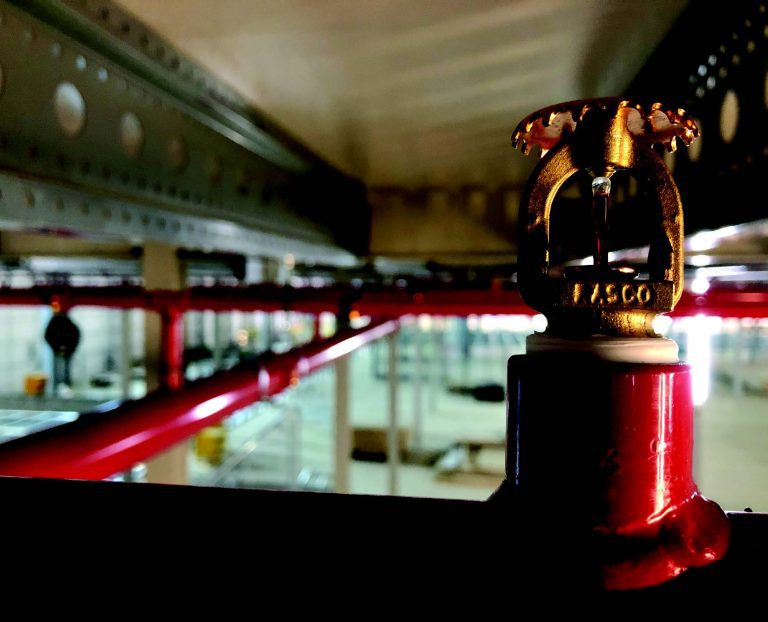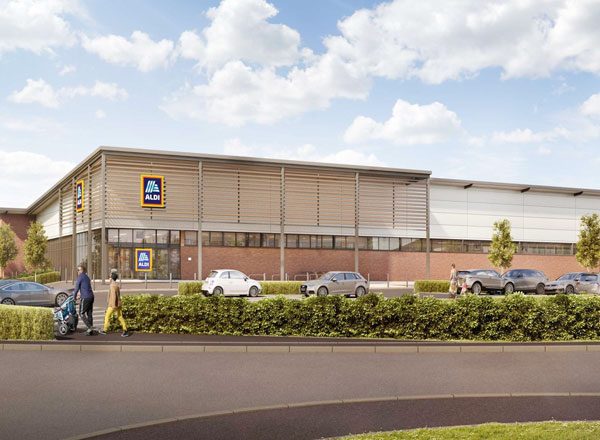The recent destruction of a state-of-the-art warehouse highlighted the issue of fire safety within highly automated buildings. The growth of e-commerce is impacting the global economy and will continue to do so as industry 4.0 further develops. Rapid development of delivery hubs to meet consumer needs and the resulting demand for prime space has resulted in the need for maximised utilisation of every square foot. Even as distribution centres become regional hubs and move closer to consumers to achieve rapid delivery, they must also have systems for storing, handling and picking to get product out of the door as efficiently as possible. This requires more and more automation, the development of which, will eventually touch every aspect of our lives from autonomous vehicles to advanced storage solutions and robotics. The recent destruction of a state-of-the-art warehouse highlighted the issue of fire safety within highly automated buildings. Whilst an award-winning advanced fire suppression system was in place, it took 200 firefighters and several days of intense fire-fighting efforts to extinguish the blaze. This building was a prototype with over 1100 robots swarming over a 3D frame called the ‘grid’ to locate goods, from tins of baked beans to toilet rolls. Travelling at up to four metres a second, the robots would fulfil a typical consumer order in around five minutes. Whilst the cause is still usunder investigation, early reports suggest that it may have been caused by a malfunctioning robot and the configuration of the high-density rack-ing. This reportedly made accessing and fighting the fire physically challenging. The fire is a red flag indicator that critical life safety and protection systems must keep pace with the development of these highly automated spaces. Sprinkler systems are a highly effective form of fire protection that detect, act and initiate an alarm in response to a fire event. The National Fire Chiefs Council and the National Fire Sprinkler Network worked together to investigate the ‘Efficiency and Effectiveness of Sprinkler Systems’. The findings indicate, that where installed, sprinkler systems operate on 94% of occasions. Furthermore, it is evident that when they do operate, they extinguish or contain the fire on 99% of occasions. There was not a single report of a death in a non-domestic building where sprinklers were recorded as being present and sprinklers could be expected to work. Sprinkler systems have demonstrated their value in protecting life and property in industrial and commercial applications for many years. The importance of fire suppression sprinklers in the new ecommerce world has never been more relevant. Alpine Fire Engineers have been heavily involved supporting the move to these highly automated buildings which is reflected in their impressive year on year growth. Steven Nanda, Alpine’s CEO states, “Alpine continues to be at the forefront of fire suppression design within the distribution, food, manufacturing and pharmaceutical sectors. Using the very latest VR and BIM technology we are leading the way with bespoke solutions designed to deliver optimal performance in the event of an activation. Our collaboration with key designers in the automation world ensures that we are delivering cost effective and operationally efficient systems.” Alpine is an LPC level 4 accredited company which ensures that their clients receive accurate, up to date and invaluable information at whatever stage of the process. The Project Engineering team, who are fully conversant with both LPC BS EN 12845 and FM Global specifications, engage early to support their customers from the initial planning stage right through to interpreting employer’s requirements. They will also comfortably liaise directly with insurers to ensure design standards and specifications are met whilst delivering a cost effective and high-performance solution to mitigate their customers risk In the aforementioned report, ‘Efficiency and Effectiveness of Sprinkler Systems’, it was identified that in the cases where sprinklers system did not operate, there were two main reasons. Firstly, there was a fault in the system which had not been identified/rectified through planned maintenance and secondly, the system was switched off. Accordingly, and as recommended within the LPCB guidelines, it is critically important that the system undergoes a strict regime of planned and preventative maintenance on an ongoing basis by appropriately trained personnel or a certified company. This ensures that the building is adequately safeguarded in the event of a fire hazard, that assets are insured and the system is compliant. Alpine Fire Engineers directly employs a nationwide team of highly trained Service Engineers who will inspect automatic fire suppression systems as part of a planned and preventative maintenance regime, which is vital to ensure deployment and optimal performance when the system is needed Planned maintenance schedules are tailored to the needs of each site ensuring that the requirements of LPCB 1048 guidelines and those of the insurers are met. for more information on Alpine Fire, please visit www.alpinefire.co.uk








